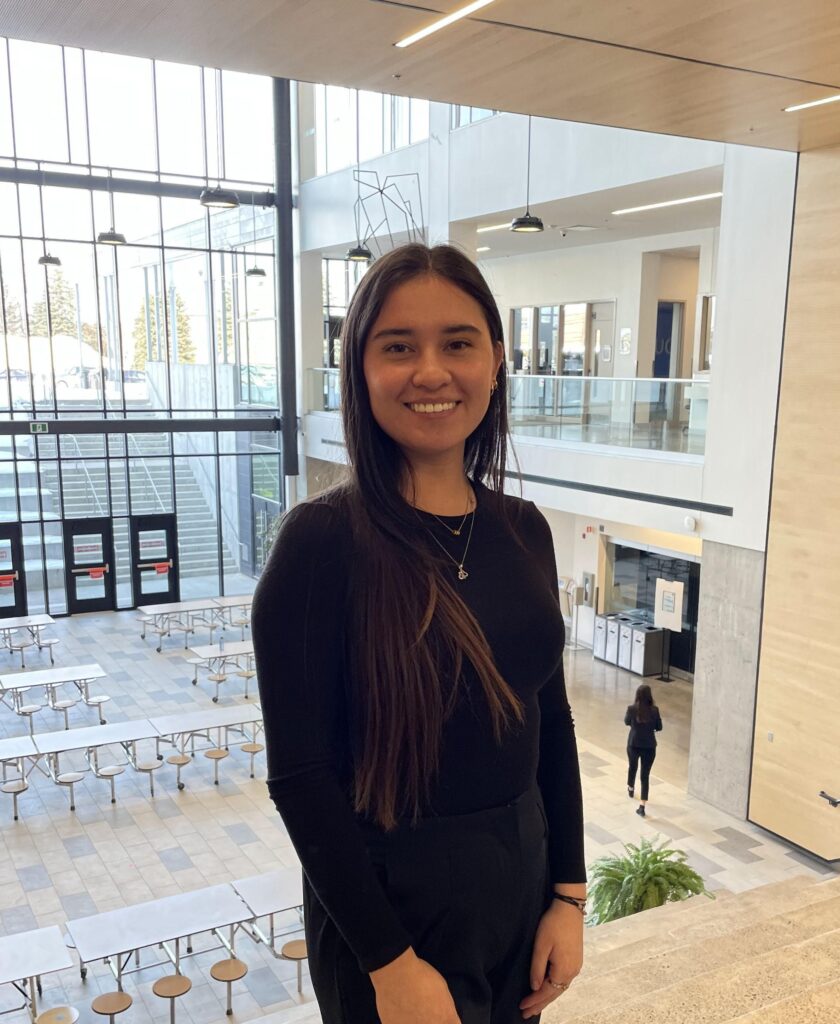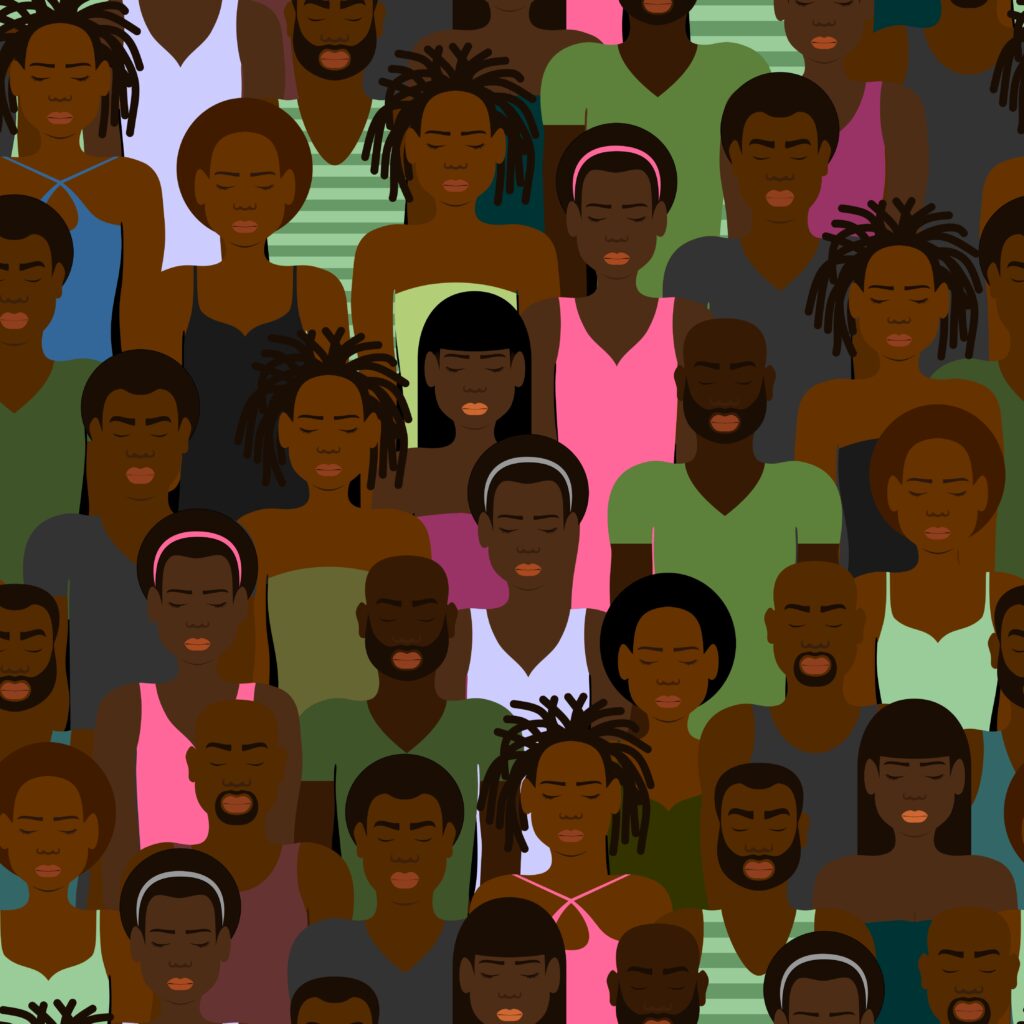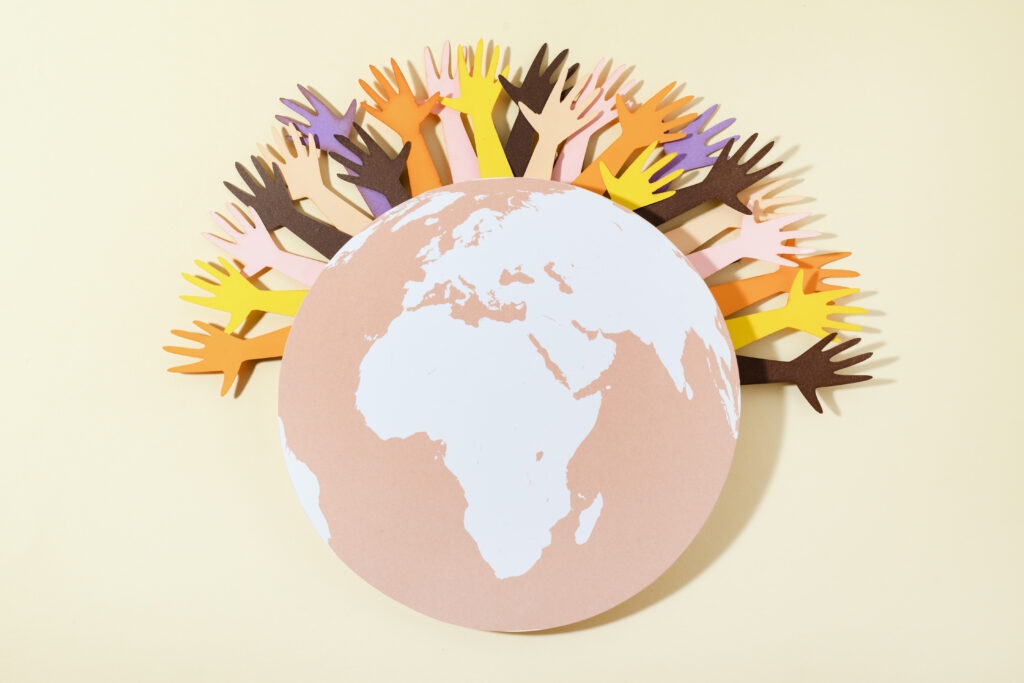
Natalia Valero is a recent graduate of the University of Ottawa. She has completed an Honours degree in International Studies and Modern Languages. Natalia is interested in international development, conflict resolution, and domestic and global politics.
Recent and past conflicts in Africa reflect the diverse and complex political, economic, cultural, and ethnic background of the continent. In countries such as South Africa, Ethiopia, and Nigeria, a federal system with multilevel governance has been presented as a model able to accommodate diversity. In a multilevel system, cooperation, partnership, and power distribution operate to varying degrees in order to deal with divisions along territorial, social, political, and cultural lines. In this way, federal governance systems may act as a peacebuilding tool.
Despite this, the legacy of colonial practices in governance in African federations continue to perpetuate economic and political exclusion (Gilpin, 2016, p.24) causing societal grievances that are manifested through violence, conflict, and power contestation. Given this, the continuation of ongoing peacebuilding efforts may be essential for good governance, the success of institutions, the prevention of the resurgence of violence, and the overall improvement of quality of life. By strengthening peacebuilding at different levels of governance, peace processes are more likely to be sustainable and meet long-lasting results (Williams, 2021). In Africa, the empowerment of local governments supports the development of policies and initiatives for peacebuilding, and thus inclusion mechanisms in federal structures are key to local peacebuilding.
When looking at recent and historical approaches to peacebuilding, it can be argued that addressing peacebuilding in a top-down approach might strengthen democracy, but it overlooks the local dimensions of a conflict (Kendhammer& Sullivan, 2022). In this vein, the possible relationship between ethnic and social grievances and weakened governance structures allows for an examination of the connection between federal/multilevel governance and local peacebuilding initiatives. Although grassroots peacebuilding movements have reduced violence and prevented outbreaks of conflict, flaws in some African structural systems such as corruption, lack of state cooperation and intervention, as well as insufficient assistance, prevent the advancement and development of locally led processes of peace.

Federalism and the mechanism for local empowerment
As a system of governance, federalism enables groups to maintain identities, cultures, and distinctiveness through shared rule and the division of governmental authority into different levels of governmentality (Watts, 1998). This differs from peacebuilding in that peacebuilding is not a system of governance, but rather a set of actions and approaches that revolve around conflict prevention and resolution, capacity building, reconciliation, and autonomy. Therefore, despite the fact that processes of federalization and processes of peacebuilding are often treated as distinct and separate, federal mechanisms can provide a platform for peaceful agreements considering that institutions aim to promote the accommodation and protection of minorities’ rights (Bermeo, 2002, p.97) and ethnic pluralism.
The origins of federalism in Africa, as manifested in Nigeria, Ethiopia, and South Africa, were in part driven by identity-based divisions both ideologically and demographically, the outcome of emergence from colonial rule (Gilpin, 2016). Federalism thus was employed to assure unity and stability in these diverse countries following post-colonial independence. Nigeria is currently composed of 36 states created in 1996 to promote power distribution and power sharing. Ethiopia adopted a federal system in 1995 to bring together many different ethnolinguistic groups. Similarly, South Africa adopted a quasi-federal system in the ’90s as a compromise solution designed to accommodate the different interests of groups in the post-apartheid climate of the country. In these countries, federalism aims to provide a balance of power through decentralization, supporting diversity as well as the autonomy of provinces, states, or municipalities to manage their internal affairs. But decentralization, along with peacebuilding, are dynamic processes that require multidimensional and unique approaches adapted to local contexts.
In terms of the organizational infrastructure surrounding grassroots movements and local peacebuilding, all three countries have enabled mechanisms for the inclusion of Local Peace Committees (LPCs). LPCs are local structures that, by use of traditional and customary practices, facilitate peacemaking and peacebuilding (Nganje, 2021). In Nigeria, agencies in different states have established Peace Agencies that set up peace committees in different Local Government Areas (LGAs) intending to address conflict at the neighborhood level in which the federal state has less direct access (Kew, 2021). In Ethiopia, local governments are called woredas while neighborhood administrative units are called kebele. Their mandate, which is limited to local governance, administration, and service delivery, is established by the Ministry of Federal Affairs. LPCs primarily operate within woredas and kebele to advance local peacebuilding initiatives. Lastly, South Africa grants a direct mandate to LPCs through its three-layered peace national framework. LPCs are integrated into the broader structure of local governance while collaborating with other local and federal agencies.
Despite the establishment of LPCs in African federations, the success of their operations and projects is mixed due to illicit financial flows (Security Council 9106th, 2022), financial dependency on and lack of engagement from the federal state, institutional arrangements, and perceived illegitimacy.
Financial dependency
In Nigeria, LPCs face multiple challenges including financial dependence, as these local associations are reliant on state and federal allowances because of the significant rates of corruption and misuse of public funds that should be destined for public services (Ademu, 2013, p.315). Additionally, as a special report led by the United States Institute of Peace notes, state governors hold authority over budgetary and local policies (Kew, 2021, p. 4) which in turn leads to the reduction of funds provided directly to local communities. Financial autonomy is crucial for the empowerment of local communities but the financial dependence of LPCs in Nigeria on federal allowances has a counteractive effect on their development and growth.
The case of South Africa is similar since LPCs have grown dependent on external funding which has been counter-productive to the essence of community-owned initiatives (Nganje, 2020, p.81). The effect of relying on international funding, especially from NGOs, can have different results. On one hand, external funding is essential for the sustainability of certain LPCs that are not recognized by federal authorities and therefore do not receive federal funding. International funding is particularly important for LGBTQ organizations since they tend to obtain less support from central governments. On the other hand, external involvement might inhibit the unique African cultural approach of peace processes, thus hindering formal federal recognition and consequently, relationships of legitimacy. External funding can lead to a shift from the original grassroots movement in terms of priorities, interests, and power dynamics which distorts the initial nature of local goals.

The struggle and quest for legitimacy
Some LPCs in Ethiopia work formally in part for the mandate of Conflict Early Warning and Early Response (CEWARN) under the auspices of the Ministry of Federal Affairs. Despite a predisposition from the federal state to LPCs’ inclusiveness, there is a lack of communication infrastructures, state interventions, and political will (Glowacki & Gönc, 2013, p.46). Kebele committees lack the autonomy to self-rule in part because of the traditional and customary character of the conflict resolution approaches they employ and the modern judicial approaches they must employ to gain legitimacy. Moreover, peacebuilding is dominated by a top-down liberal approach where the federal state is the insurer of peace in the territory as a whole (Kenee, 2022, p. 419). This approach neglects the diverse needs of the numerous groups in the country.
In Nigeria, local peacebuilding initiatives struggle with recognition as well. Local mechanisms are perceived as unimportant and illegitimate by the federal government, mostly when they are informal LPCs with no direct governmental mandate. The current federal system contributed to the rise of informal LPCs due to the lack of security and justice along with cultural and religious differences.
South Africa also struggles with the question of formal versus informal LPCs. Formal LPCs have a formal structure and recognition in addition to federal support. In this way, formality grants privileges, legitimacy, and participation in decision-making. However, it marginalizes people or groups who do not identify with the LPC but live the region of the LPC. In this case, informality encourages dynamism, local participation, and ownership of peacebuilding processes (Nganje, 2020, p.130). LPCs thus require institutional legitimacy from the federal government, putting them in a dependent relationship with regard to the formal institutions and processes of the federal state.
Conclusion
In African federations, peacebuilding operations do not always involve local communities and tend to focus on preserving federal authority across the territory rather than dealing with the micro-level political inequalities that reside at the root of conflict and violence. Local Peace Committees (LPCs) and other local-led groups are organized around specific and unique goals that remain helpless without the necessary resources. Peacebuilding in African federations therefore must be modeled in a hybrid manner combining the interaction of formal and informal actors, so governance includes implicit practices, social understandings, and the informalization of the state resulting in policies better attuned to the needs of people at grassroots (Bagayoko et al., 2016, p.19). While federal systems and structures in South Africa, Ethiopia, and Nigeria have advanced peace processes at a local level, these systems can constrain the contributions and activities of LPCs because of flaws in the distribution of resources, the interdependency between the national state and its LPCs for funds, and the constant denial of legitimacy. Institutional processes concerning local peacebuilding tend to constrain the role of LPCs by providing little support and cooperation from state agencies which makes it difficult for LPCs to address local conflicts that remain embedded in the broader political, social and economic structure of the state (Nganje, 2020, 130).
Bibliography
Ademu, W. A. (2013). Eradicating Corruption in Public Office in Nigeria. Interpersonal : An International Journal on Personal Relationships, 7(2), 311–322. https://doi.org/10.5964/ijpr.v7i2.151
Bagayoko, N., Hutchful, E., & Luckham, R. (2016). Hybrid security governance in Africa: rethinking the foundations of security, justice and legitimate public authority. Conflict, Security & Development, 16(1), 1–32. https://doi.org/10.1080/14678802.2016.1136137
Bermeo, N. (2002). A New Look at Federalism: The Import of Institutions. Journal of Democracy, 13(2), 96–110. https://doi.org/10.1353/jod.2002.0021
Gilpin, R. (2016). Understanding the nature and origins of violent conflict in Africa. Minding the Gap: African conflict management in a time of change, 21.
Glowacki, L., Gönc, K. (2013). Investigating the Potential of Peace Committees in Ethiopia. IAG InterAfrica Group. https://www.ziviler-friedensdienst.org/sites/default/files/media/file/2022/zfd-investigating-potential-peace-committees-ethiopia-1941_178.pdf
Kendhammer, B., & Sullivan, R. (2022, August 25). Peacebuilding needs local partners – but how do you define “local”? United States Institute of Peace. https://www.usip.org/publications/2022/08/peacebuilding-needs-local-partners-how-do-you-define-local
Kenee, F. (2022). Pastoralists and Violent Conflict along the Oromia–Somali Border in Eastern Ethiopia: Institutional Options toward Peacebuilding. African Studies Review, 65(2), 404-429. doi:10.1017/asr.2021.89
Kew, D. (2021). Nigeria’s State Peacebuilding Institutions: Early Success and Continuing Challenges. US Institute of Peace. https://www.usip.org/publications/2021/06/nigerias-statepeacebuilding-institutions-early-success-and-continuing
Nganje, F. (2020). Pan-Africanism from Below? The Peacebuilding Role of Local Peace Committees in South Africa. International Journal of African Renaissance Studies, 15(2), 67–86. https://doi.org/10.1080/18186874.2020.1868270
Nganje, F. (2021). Local Peace Committees and Grassroots Peacebuilding in Africa. In: McNamee, T., Muyangwa, M. (eds) The State of Peacebuilding in Africa. Palgrave Macmillan, Cham. https://doi.org/10.1007/978-3-030-46636-7_8
UN press. (2022, August 8). Amid mixed results for Africa’s effective governance, peace, security, speakers in Security Council spotlight ways to end violence, build capacity for growth. United Nations. https://press.un.org/en/2022/sc14993.doc.htm
Watts, R. L. (1998). Federalism, Federal Political Systems, and Federations. Annual Review of Political Science, 1(1), 117–137. https://doi.org/10.1146/annurev.polisci.1.1.117
Williams, P.D. (2021). Learning Lessons from Peace Operations in Africa. In: McNamee, T., Muyangwa,M. (eds) The State of Peacebuilding in Africa. Palgrave MacMillan, Cham. https://doi.org/10.1007/978-3-030-46636-7_2







